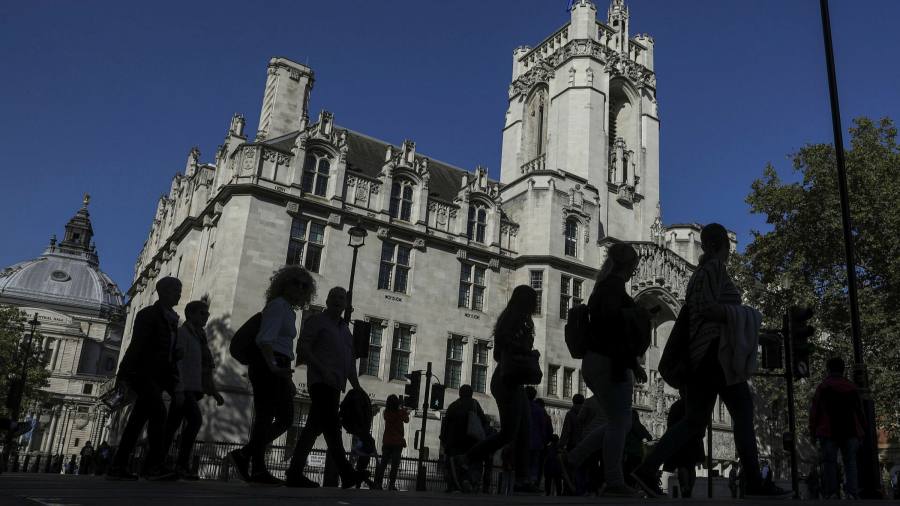[ad_1]
Courts in England and Wales would have their ability to review ministerial decision-making curtailed if government proposals unveiled on Thursday are enacted.
Robert Buckland, Lord Chancellor, launched a public consultation based on the recommendations of an independent panel led by former justice minister Lord Edward Faulks, who examined judicial review — the process which allows the lawfulness of government decisions to be challenged through the courts.Â
It will focus most conspicuously on the use of “ouster clauses†in primary legislation, which deny the courts the right to review a government policy or decisions of certain bodies.
These have been included in parliamentary statues for more than 70 years and seek to “oust†the jurisdiction of the High Court to review a policy or body.
However, such measures are hugely controversial. In 2004 an ouster clause included by then home secretary David Blunkett in an asylum and immigration bill had to be dropped after an outcry.
The government claimed in its response to the review that the courts have at times sought to dilute the effect of ouster clauses, “stretching logic and hypothetical scenariosâ€, which “makes the law as set out by parliament far less predictableâ€.Â
It said when publishing the consultation that “ouster clauses are not a way of avoiding scrutiny†but “further clarity is . . . needed to set out how the courts should interpret such clauses and the circumstances in which ouster clauses must be upheldâ€.
Buckland said the proposals would “defend the judiciary from being drawn into political questions and preserve the integrity of judicial reviewâ€.
The Faulks review, which was published on Thursday along with the consultation, was set up last July after the 2019 Tory party election manifesto promised to ensure that judicial review was not being misused or “abused to conduct politics by another meansâ€.Â
Many Tory MPs have been critical of judicial review after the government lost several high-profile court cases, including a Supreme Court ruling in 2019 that Prime Minister Boris Johnson had acted unlawfully over the prorogation of parliament.
The government also wants to adopt Faulks’ two main recommendations including preventing appeals from the Upper Tribunal — often involving immigration cases — being subject to judicial review in the High Court. The Faulks Review analysed 5,502 such judicial reviews between 2012 and 2019 and found that only 12 cases had an error of law.
Buckland also wants to adopt the recommendation allowing the courts to delay making immediate orders quashing a government decision — allowing time to rectify any policy errors.
The conclusions of the Faulks review are far less radical than some in the legal profession had feared — although lawyers pointed out that the government’s new consultation appeared broader. Buckland on Thursday said it was “worthwhile to consult on measures that were not recommended by the panel, but would complement their main proposalsâ€.Â
David Greene, president of the Law Society, which represents solicitors, said: “We need to consider carefully government proposals to change rules that would put some ministerial decisions beyond the reach of the court — so-called ouster clauses — but the guiding principle must be the government, is and must remain answerable to the law.â€
Sir Jonathan Jones, senior consultant at law firm Linklaters and a former Treasury solicitor, called the Faulks review a “thorough and serious piece of work†which did not bear out claims there had been a surge of unmeritorious cases in recent years.
Maurice Sunkin, professor of public law at the University of Essex, said: “The review may not have produced the result that the government may have been hoping for — but its proposals seem quite modest and sensible.â€
Campaigner Gina Miller, who successfully won two judicial review cases against the government, said she welcomed Faulks’ “thoughtful work†but expressed concern at the way Buckland had chosen to interpret the review, particularly his description of the courts as ‘servants of parliament’.
David Lammy, Labour’s shadow justice secretary, called the proposals an attempt to “hoard more power in Number 10â€.
The public consultation will run until late April.
[ad_2]
Source link





